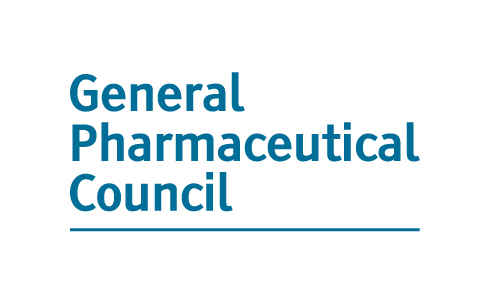Wellbeing in a time of change
)
At the time of writing this, Pharmacy First has been live for just a couple of days. If my social media feeds were anything to go by, its launch was met with a mixture of excitement and trepidation. One thing that I took away from it though was the need to support community pharmacy colleagues, both personally and professionally as they adjust to this huge change.
The general feeling is that Pharmacy First is a huge opportunity for community pharmacy to support the health and wellbeing of people, along with welcome recognition of community pharmacy professionals as skilled healthcare professionals. However, the timeframe to prepare to actually deliver this service has felt short and overwhelming to many – never mind the need to start communicating the change to the public.
Whilst the trade press has been awash with articles on various aspects of the service, I wanted to take the opportunity to focus on the wellbeing of you, and your teams.
The Royal Pharmaceutical Society and Pharmacist Support Workforce and Wellbeing Survey 2022 reported that the majority of respondents (88%) are at high risk of burnout, a figure which has barely shifted since 2020 (when it was 89% in both years). This figure increases further when you look at the proportion of respondents in community pharmacy, where the figure was 96% in 2022, 95% in 2021, and 96% in 2020.
What is more, in that time, the proportion of respondents reporting that they enjoy or really enjoy their work has dropped from 54% in 2020, to 32% in 2021 and 28% in 2022. While no one thing can be attributed as the cause of these figures on burnout and enjoyment, and covid and its aftermath has no doubt had a huge impact, they remain hugely concerning.
As Harpreet Chana, Founder & CEO of the Mental Wealth Academy says:
‘The sector knows that Pharmacy First is a big test and they want to prove that they are willing and ready to deliver but on top of the additional volume from rapidly closing pharmacies and burnt-out staff leaving the sector, there is a real serious threat to the already deteriorating mental health of pharmacy teams.'
So, what can you do to ensure that you and your teams deliver Pharmacy First, safely and effectively, without undue detriment to your own health and wellbeing?
First, remember this is a marathon, not a sprint. Not everything can – or needs to – be dealt with straight away. Use your professional judgement to triage and decide who needs to be seen urgently, and who can be asked to come back later.
Then, communicate this with your patients. Be transparent and let them know your reasoning. Often, people simply want to know that someone is listening to them, and that there is a plan in place for the next steps for them to take.
Be open and transparent with colleagues too. If you are an owner or superintendent, ensure that you are providing a safe space for team members to ask questions and raise concerns. If you are working within a pharmacy team, make sure you speak up about anything which worries you – even if you think it might seem trivial.
Continually review and assess – do you have the right skill mix and sufficient workforce to safely offer a service at a particular time and in a particular situation?
Remain curious and seek advice. Share your experiences with your networks – a problem shared is a problem halved might seem trite, but teams up and down the country are going through the same thing. By discussing challenges and sharing successes, nobody has to expend unnecessary time and energy reinventing the wheel.
Finally, take a break. The rollout of Pharmacy First is without a doubt intense, but make sure you are taking time out to rest and recuperate regularly. Carve out time for yourself every day to do something completely unrelated to work that you find relaxing or reenergising. This could be anything from running to reading, meditating, or simply dinner with loved ones – whatever allows you to switch off from work.
Harpreet adds:
‘The days of clearing the dispensing bench and green ticking everything by the end of the day or long behind us. If we are going to make this service a success we're going to have to get better at a few things. Namely, 1. Delegating - do you really have to do all the things that you are doing? How much of it is your own need for exceptionally high standards and control playing out? 2. Prioritising - rather than servicing the person who is shouting the loudest, it's about being able to assess what is going to be the most impactful activity for you to prioritise in terms of patient and business impact and 3. Pushing back - you can only do so much and it's firstly being OK with that and secondly setting effective boundaries to ensure you are not overloading yourself.
These things are hard for us pharmacists to do and it’s why I am launching my training course – ‘Overcoming Overwhelm and Managing Workload in Community Pharmacy’ to help. You can see more details on this here: ttps://subscribepage.io/mwaonline’
It will take time to get used to such a huge change, it’s important to recognise this and allow yourself and teams the time to adjust. And ensure you make the most of all the support out there, including Harpreet’s course (above), to help navigate the change.
More resources:
https://cpe.org.uk/national-pharmacy-services/advanced-services/pharmacy-first-service/
https://www.pharmacyregulation.org/news/safely-providing-wider-range-services-community-pharmacy

)
)
)
)
)
)
)

.png/fit-in/500x500/filters:no_upscale())
)
)
)
)
)
)
)
)
)
)
)
)
)
)
)
)
)
)
)
)
)
)
)
)
)
)
)
)
)
)
)
)
.png/fit-in/1280x9999/filters:no_upscale())
)
)
)
)
)
)
)
.jpeg)
)